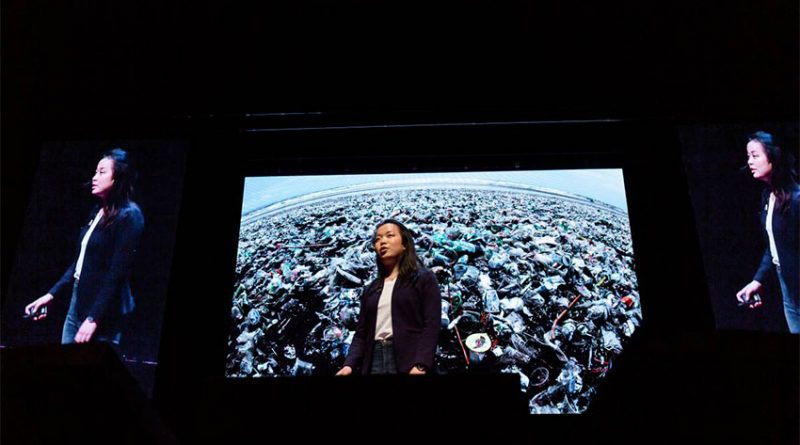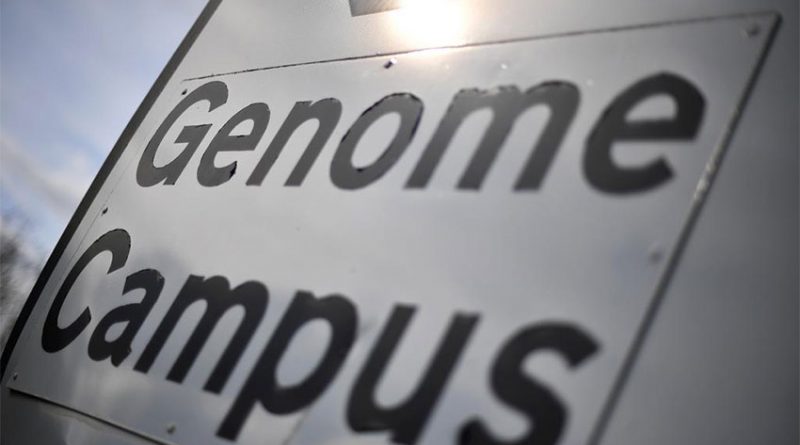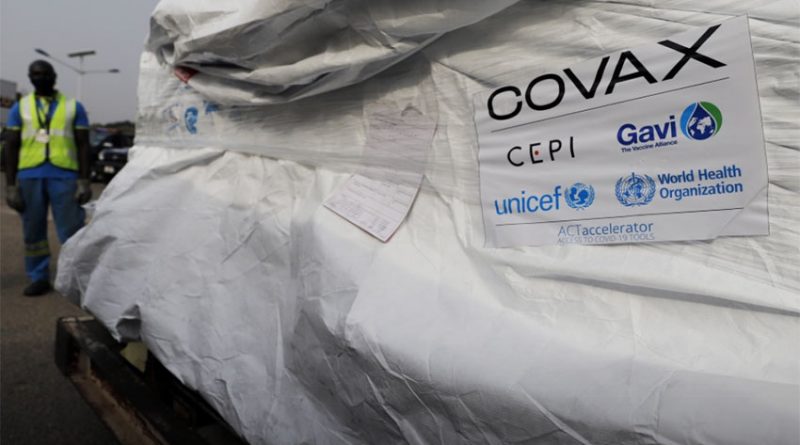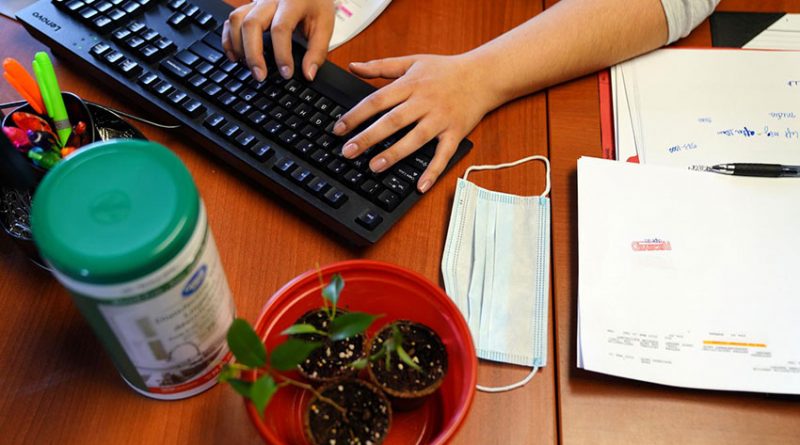THEY have been called a lost generation – fledgling careers, studies and social lives upturned by the chaos wrought by COVID-19.
But as the pandemic exposes long-standing social problems, and creates new ones, some young people have seized the opportunity to apply business-minded solutions.
The Thomson Reuters Foundation asked three young, female social entrepreneurs to reflect on their experiences over the last year and what advice they can give to other youths hoping to set up socially conscious businesses.
We spoke to Harsha Ravindran, 18, co-founder of Ascendance, a Malaysia-based social enterprise and youth movement that connects and empowers students to help them to share ideas and learn about how to tackle major societal challenges like climate change, education, health and poverty. Ravindran is also the founder of social enterprise Startmyname.com, which helps create simple and quick websites.
Gabby Tan, 19, is a Malaysian student at Stanford University and an environmentalist and educator. Most recently, she has been working on Tideturners – a youth-led environmental education project dedicated to increasing awareness of key environmental issues and facilitating greater youth engagement in advocacy and solutions.
Tracy Rabi, 11, is an author and founder of Kids Finance With Tracy in Tanzania, which gives financial and entrepreneurship education to African children aged 8-17 through finance books written by Rabi, flashcards, summer holiday camps and free online content.
What makes young people well-equipped to tackle pressing issues through social entrepreneurship?
Ravindran: “Many teenagers and Gen Z’s are already making waves today by doing what they can to champion the causes they support, and they are willing to put in the hard work to achieve their goals. Today’s technology and freedom enable us teenagers to go about there and learn first hand about the issues surrounding us, hence giving us a little bit of experience that equips us with the skill set we need to tackle these pressing issues.”
Tan: “Over the past seven years, I’ve had the chance to work with and learn from like-minded teenagers who are taking on big issues across all corners of the world. The power of young people is in our energy, big ideas, determination, and a common desire for a better, more sustainable, and just world. When we come together, we can do so much.”
Rabi: “Youths like me are best equipped to tackle the pressing issues that teenagers especially face as we live the life and see the challenges that face us. We are also best positioned to create solutions for our problems in a language and manner that is both interesting and relevant to our peers. Social entrepreneurship for us helps us learn and practice entrepreneurship skills, make money and do good to our societies all at once.”
Do you see this as a viable career, especially if pandemics become the norm?
Ravindran: “Social enterprises provide a platform for anyone to have a sustainable and successful career in creating social change. This pandemic has definitely shown us that both normal and social businesses play an important role in keeping the world turning.”
Tan: “Social entrepreneurship is definitely the future because our generation is increasingly conscious of the impact we’re having on people our planet and we care more than ever about the ways we learn, consume, and produce.
“The pandemic has affected marginalized and vulnerable communities the worst, exacerbating inequalities and emphasising the fact that if we maintain the status quo, we will be ill-equipped for future crises. As we come out the other side of this pandemic, I hope we take the opportunity to reimagine our world and recover better.”
Rabi: “Definitely, we deliver our teachings via digital platforms like social media, YouTube and soon, mobile apps. With no or minimum physical interaction, this makes our product usable even if pandemics become the norm. We plan to keep this venture going as I grow into an adult. The business model works and the business allows for changes and adoptions as technology keeps evolving.”
What’s your one piece of advice for female youths aspiring to become social entrepreneurs?
Ravindran: “Find an issue that speaks to your heart and is personally meaningful to you and set a clear goal that you want to achieve. From there, find an environment of people who can help support you in what you do. Don’t follow the norm, instead focus on constantly looking for creative solutions to the problems that stand in your way towards your goal.”
Tan: “Once you find your ‘why’ and the issue that makes you tick, the first thing you should do is find like-minded, passionate people to work with because we are always better together. In order to solve issues we must be relentless, which is so much easier when we have a team to come along with us.”
Rabi: “It is the most rewarding thing to do. Learning is fun, interacting with different people is fun and the new things you learn cannot be measured. I advise aspiring teenpreneurs to take the leap of faith and try social entrepreneurship as a hobby then ask an adult to help you make a business out of it.” 
Source – Thomson Reuters Foundation
REGULAR booster vaccines against the novel coronavirus will be needed because of mutations that make it more transmissible and better able to evade human immunity, the head of Britain’s effort to sequence the virus’s genomes told Reuters.
The novel coronavirus, which has killed 2.65 million people globally since it emerged in China in late 2019, mutates around once every two weeks, slower than influenza or HIV, but enough to require tweaks to vaccines.
Sharon Peacock, who heads COVID-19 Genomics UK (COG-UK) which has sequenced half of all the novel coronavirus genomes so far mapped globally, said international cooperation was needed in the “cat and mouse” battle with the virus
“We have to appreciate that we were always going to have to have booster doses; immunity to coronavirus doesn’t last forever,” Peacock told Reuters at the non-profit Wellcome Sanger Institute’s 55-acre campus outside Cambridge.
“We already are tweaking the vaccines to deal with what the virus is doing in terms of evolution – so there are variants arising that have a combination of increased transmissibility and an ability to partially evade our immune response,” she said.
Peacock said she was confident regular booster shots – such as for influenza – would be needed to deal with future variants but that the speed of vaccine innovation meant those shots could be developed at pace and rolled out to the population.
COG-UK was set up by Peacock, a professor at Cambridge, exactly a year ago with the help of the British’s government’s chief scientific adviser, Patrick Vallance, as the virus spread across the globe to Britain.
The consortium of public health and academic institutions is now the world’s deepest pool of knowledge about the virus’s genetics: At sites across Britain, it has sequenced 346,713 genomes of the virus out of a global effort of around 709,000 genomes.
On the intellectual frontline at the Wellcome Sanger Institute, hundreds of scientists – many with PhDs, many working on a voluntary basis and some listening to heavy metal or electronic beats – work seven days a week to map and then search the virus’s growing family tree for patterns of concern.
Wellcome Sanger Institute has sequenced over half of the UK total sequenced genomes of the virus after processing 19 million samples from PCR tests in a year. COG-UK is sequencing around 30,000 genomes per week – more than the UK used to do in a year.
MUTATION LEADERBOARD
Three main coronavirus variants – which were first identified in Britain (known as B.1.1.7), Brazil (known as P1)and South Africa (known as B.1.351) – are under particular scrutiny.
Peacock said she was most worried about B.1.351.
“It is more transmissible, but it also has a change in a gene mutation, which we refer to as E484K, which is associated with reduced immunity – so our immunity is reduced against that virus,” Peacock said.
With 120 million cases of COVID-19 around the world, it is getting hard to keep track of all the alphabet soup of variants, so Peacock’s teams are thinking in terms of “constellations of mutations.”
“So a constellation of mutations would be like a leaderboard if you like – which mutations in the genome that we’re particularly concerned about, the E484K is must be one of the top of the leaderboard,” she said.
“So we’re developing our thinking around that leaderboard to think, regardless of the background and lineage, about what mutations or constellation of mutations are going to be important biologically and different combinations that may have slightly different biological effects.”
Peacock, though, warned of humility in the face of a virus that has brought so much death and economic destruction.
“One of the things that the virus has taught me is that I can be wrong quite regularly – I have to be quite humble in the face of a virus that we know very little about still,” she said.
“There may be a variant out there that we haven’t even discovered yet.”
There will, though, be future pandemics.
“I think its inevitable that we will have another virus emerge that is of concern. What I hope is that having learned what we have in this global pandemic, that we will be better prepared to detect it and contain it.”
Source – Thomson Reuters Foundation
RUSSIA and China are racing to plug the COVID-19 vaccine gap in Africa, hoping to cement their influence on a continent where many countries have yet to administer a single shot.
But, so far, vaccine donations from Beijing and Moscow have been small, the commercial deals they offer are costly, and some African governments are wary about a lack of data.
As rich countries ramp up their inoculation drives, Africa, without the resources to pre-order Pfizer, AstraZeneca , Moderna and Johnson & Johnson vaccines, is being left behind.
With Western nations facing criticism for hoarding supplies, flooding Africa with life-saving shots would be a soft-power coup for Russia and China.
Moscow has offered 300 million doses with financing to an African Union (AU) purchasing scheme.
Beijing has pledged nearly a quarter of all its vaccine donations to Africa, according to data compiled by Bridge Consulting, a Beijing-based health sector advisory.
“This is a vivid manifestation of China-Africa friendship,” China’s foreign ministry told Reuters.
“Africa is one of the key markets for Sputnik V,” said the Russian Direct Investment Fund (RDIF), the sovereign wealth fund marketing its Sputnik V vaccine abroad.
French President Emmanuel Macron says Europe and the United States risk losing influence in Africa over the issue.
However, John Nkengasong, head of the Africa Centres for Disease Control and Prevention, cautioned against “vaccine diplomacy”, saying powers must not use token allocations to curry political influence.
“Africa will refuse to be that playing ground where we use COVID as a tool to manage relationships,” he said on a webinar hosted by the Atlantic Council think tank in late February.
“It becomes like you’re trying to sprinkle water on a very hot day on children … Then you can tick the box that you did that,” he said. “That’s not what we are after as a continent.”
While other developing regions have turned to Russia or China, in Africa their engagement has translated into few shots in arms.
Africa has received around 3.15 million shots from China – or less than 4% of its vaccine exports – Bridge Consulting data showed.
“The numbers of vaccines China is donating are not going to move the needle in any of these countries. But it’s as much about the optics,” said Eric Olander, co-founder of The China-Africa Project.
Russia has shipped a total of around 100,000 vaccine doses to Algeria, Tunisia and Guinea.
The global vaccine sharing scheme COVAX, meanwhile, delivered nearly 15 million shots to 22 African countries in its first 10 days.
The facility co-led by the World Health Organization, GAVI and others aims to ship 35 million doses to Africa by the end of the month and 720 million by the end of 2021.
That will still only be enough to inoculate those at greatest risk.
DATA DEFICIT
China’s leading vaccines – from the China National Pharmaceutical Group (Sinopharm) and Sinovac – are not yet approved for emergency use by the WHO. Neither is Russia’s Sputnik V vaccine.
China offered South Africa – the African nation hardest hit by the pandemic – 2 million shots, its health minister said.
But a government official involved in procurement told Reuters the lack of trial data meant Chinese vaccines were not being seriously considered for now. Sputnik V was also relegated to a second tier of vaccines South Africa says need more study, according to the health ministry.
Even some countries that accepted donations have shied away from purchases.
Uganda considered buying Chinese vaccines but is focused on COVAX due to their cost and the availability of data, said Ombeva Malande, director of the East Africa Centre for Vaccines and Immunization, which advised the government. Kenya is taking a similar line, he said.
Diana Atwine, permanent secretary in Uganda’s health ministry, said authorities would consider affordable vaccines approved by the WHO.
The head of Kenya’s vaccine task force confirmed it was not in talks to procure Chinese vaccines, and health ministry plans do not include Russian vaccines.
DOLLARS AND DOSES
While COVAX shots are free for most African nations, countries doing commercial deals are paying a premium.
Senegal paid $20 a shot for 200,000 doses of Sinopharm, a two-shot vaccine.
“The worst thing that could happen now is for countries to not start vaccinating,” said Tandakha Ndiaye Dieye, a member of Senegal’s vaccine advisory group, explaining the decision.
By comparison, India’s Serum Institute is selling AstraZeneca shots it manufactures for $3. The Indian government has also donated over a half million of those shots to eight African countries, according to a Reuters tally.
Beijing has so far not announced financing packages that would make vaccine deals more affordable in Africa.
At around $10 per dose, Sputnik V is cheaper, and RDIF told Reuters it would be even more competitive if subsidised via COVAX.
RDIF said it was in “advanced negotiations” with the WHO to be included in COVAX and could offer a one-shot version to reduce the cost. A spokesperson for GAVI, the global vaccine alliance helping lead COVAX, said all vaccines would be considered but they first needed approval from the WHO or another stringent regulatory authority.
RDIF said some deliveries of the Sputnik V doses offered via the AU plan could start in May.
A senior AU diplomat told Reuters that talks were taking place but no agreement had been reached. No details have been announced about the finance package. RDIF did not respond to Reuters questions about the potential deal.
Both China and Russia must increase production if they hope to become major global vaccine suppliers. For Moscow, exporting shots is politically sensitive when its own population still needs vaccinating.
“I’m not worried about whether Russia’s going to be able to deliver the doses,” said W. Gyude Moore of the Center for Global Development, a Washington think tank.
“I’m worried about how African countries are going to pay for them … COVAX is just not going to be enough.”
Source – Thomson Reuters Foundation
WOMEN in European Union countries have been disproportionately affected by the coronavirus pandemic because they make up the vast majority of workers in health and other frontline jobs, according to an EU report.
The pandemic has also brought a rise in domestic violence against women, the EU’s annual report on gender equality said.
“The COVID-19 pandemic has disproportionately affected women’s lives,” it read. “There is already ample evidence that the hard-won achievements of past years have been rolled back’…progress on women’s rights is hard-won but easily lost.”
Health risks to women had increased as had their workload and challenges to their work-life balance, said the report, which will be published on Friday and was seen by Reuters in advance. Women also took on more care responsibilities in lockdowns.
This has weighed on women’s safety, domestic violence rising in France, Lithuania, Ireland and Spain during Europe’s first lockdown in the spring of 2020, it said.
Women also filled more jobs than men which required personal contact and have been hit the hardest by restrictions introduced to curb the spread of the coronavirus.
“Women’s overrepresentation in lower-paid sectors and occupations, such as hospitality, retail, or personal services, make them particularly vulnerable in the labour markets struck by the COVID-19 crisis,” it said.
Female employment in the EU dropped slightly more than male employment early on in the pandemic and women have since had more difficulties finding new jobs.
“In contrast, service sectors that were not as disrupted due to the nature of their activity such as information and communication, finance and insurance, primarily employing men, saw an increase in employment rates,” the report said.
It warned that the trends could lead to lower pensions for women, widening the gender pension gap and other inequalities “for decades to come”.
Source – Thomson Reuters Foundation




